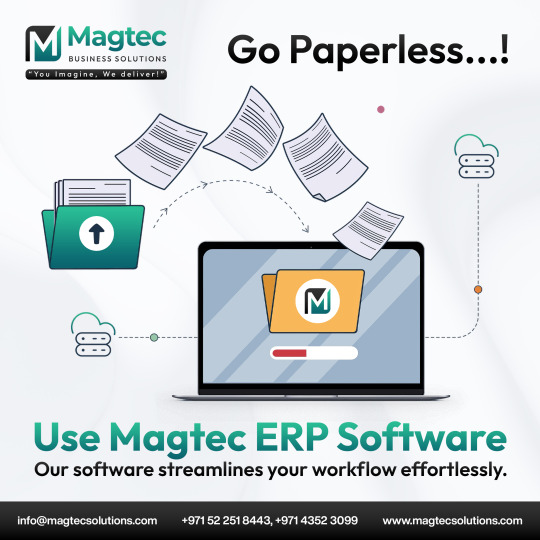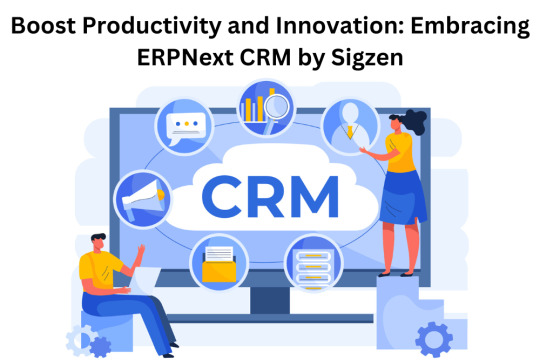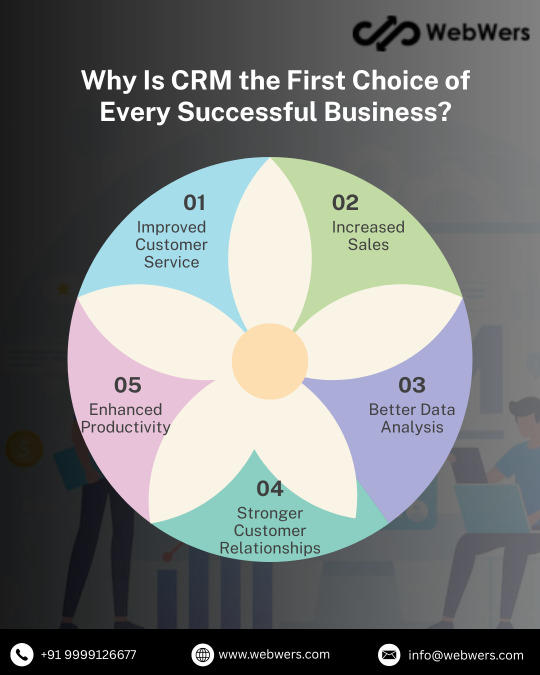#cloud crm software
Explore tagged Tumblr posts
Text
GST Billing Software for Winery: A Modern Solution for Smooth Business
Operations
A winery manager must manage production, sales, supply, and finances. Keeping organized is challenging when GST laws change often. GST billing software simplifies compliance, billing, and taxes for wineries. This lets vineyard owners and managers focus on developing exceptional wine and improving customer service. Wineries may address these issues using VERgo ERP, which streamlines daily processes. Benefits of Using GST Billing Software for Winery
Centralisation of All Information Wineries include production, sales, marketing, and bookkeeping. Managing these duties independently might lead to data inconsistency, confusion, and errors. GST accounting software centralizes data. One spot has all the information you need to monitor items, conduct client sales, and calculate GST. With a central data system, your team can collaborate better. It eliminates several systems, reducing human labour and errors.
Efficiency Gain Repeating tasks would be complex without GST billing instruments. Every sale gets automatic billing, real-time tax calculations, and inventory updates. This saves your workers time when manually entering data. Automation reduces human errors for more accurate records and speedier order processing. A better-organized firm allows your staff to focus on growth- promoting activities like marketing and client engagement.
Traceability of Information Traceability is crucial in the wine industry, whether tracking grapes, production batches, or product quality. GST monitoring software enables you to track your wine throughout its life, making it easy to trace. Connect sales, supply, and manufacturing figures to clarify. This makes recalls and other issues easier to address and offers you peace of mind, knowing you can immediately obtain the information you need.
Regulatory Compliance Wineries must follow GST laws wherever they sell. GST billing software automatically adds tax rates to sales, making this easy. This ensures you obey current tax laws. The application generates GST-compliant invoices and tax data. Because tax tasks are easier and faster, not worrying about fines or reports is greater.
Cloud Availability
Cloud-based GST payment software securely stores your data online for easy access. This is helpful for multi-location farms and remote teams. Cloud access ensures that your machine gets the latest software updates and your data is secure from local calamities like hardware failures. How VERgo ERP Helps You An all-in-one system, VERgo ERP simplifies farm management. Its centralized data administration, computerized billing, and real-time tax estimations simplify manual duties. It also simplifies inventory management and shows stock levels at all times. VERgo ERP produces GST-compliant bills and reports, making tax compliance easy. Different vineyard groups may easily collaborate using VERgo ERP's project management solutions. This ensures manufacturing, marketing, and sales cooperate. The cloud-based software enables you to access data from any device, offering flexibility and convenience. Tracking and mass messaging options in VERgo ERP increase customer relationship management. This helps wineries quickly contact clients, give promotions, and promote new wine batches and events. Conclusion Winery operations are challenging to manage, especially with GST and regulations. GST billing software like VERgo ERP may improve productivity, tracking, and compliance for your vineyard. With online access and centralized data, VERgo ERP helps your vineyard function smoothly, make fewer mistakes, and focus on growth. VERgo ERP is ideal for boutique farms and large productions since it simplifies business operations.
#CRM Software#Best CRM Software#best crm software in india#Cloud CRM software#Best Cloud CRM software#Cloud CRM software in India#best SaaS crm software#best SaaS management software
1 note
·
View note
Text
How Cloud CRM Software Improves Remote Team Collaboration
With the rise of remote work, businesses are increasingly reliant on tools that facilitate collaboration, communication, and productivity. One tool that has proven invaluable is Cloud CRM Software. But how exactly does it improve remote team collaboration, especially for small businesses? Let’s explore how leveraging this technology enhances connectivity, accountability, and overall team efficiency.
What Makes Cloud CRM Essential for Small Businesses?
As small businesses grow, managing customer relationships becomes more complex. Enter CRM Software for Small Business. Cloud-based solutions allow teams to access critical customer data from any location, enabling seamless collaboration across various time zones. This accessibility is a game changer for remote teams.

But how does it specifically help with collaboration? Let’s break it down.
Real-Time Data Access
Imagine a remote team spread across different continents. Without a centralized system, sharing customer data or tracking updates becomes inefficient. Cloud CRM Software allows real-time access to updated customer information. No more sifting through long email threads or asking colleagues for the latest client details.
For example, Commence CRM offers a cloud solution that provides up-to-date customer interactions, purchase history, and communication logs all in one place. This means no team member is left out of the loop, fostering collaboration and smoother project execution.
Task Management and Accountability
One of the biggest challenges in remote work is managing tasks and ensuring accountability. Cloud CRM Software comes equipped with task management features that assign tasks, set deadlines, and monitor progress.
In fact, according to a study by Gallup, companies with engaged and collaborative teams are 21% more profitable than those without. By providing a clear view of who is responsible for what, team members can collaborate more effectively, avoiding miscommunication.
Example: In Commence CRM, you can set up tasks for individual team members with automated reminders. This helps remote teams stay on track, ensuring nothing falls through the cracks.

Enhanced Communication Channels
Effective communication is the backbone of any successful remote team. Cloud CRM Software typically offers integrated communication tools, such as messaging, video calls, and email tracking. This keeps everyone connected and ensures that important updates are shared instantly.
Scenario: Let’s say your sales team is working remotely and needs to collaborate on a client proposal. Through Commence CRM, they can share notes, updates, and even initiate calls from within the system. No need for third-party apps—everything is housed under one roof.
Better Customer Experience
Your remote team may be scattered across the globe, but your customers expect seamless service. Cloud CRM Software ensures that your team has access to the same customer information, which leads to more personalized interactions and faster response times.
Customers don’t have to explain their needs multiple times to different team members. As soon as they contact your business, whoever they speak with can immediately access their history and pick up right where the previous interaction left off.
Data Security and Compliance
Data security is a concern for many businesses, especially when operating remotely. A robust Cloud CRM Software will not only offer seamless access but also ensure that sensitive customer data is protected through encryption and secure cloud storage.
Commence CRM prioritizes data security, offering encryption protocols and compliance measures that ensure your customer data is secure, even with a dispersed team.
0 notes
Text
#Best property listing software in UAE#Real estate listing software for UAE agents#Cloud-based property management software UAE#UAE real estate software for brokers and agents#Property listing and CRM software in UAE
2 notes
·
View notes
Text
What is ERP and Why Your Small Business Needs It?
Running a small business is a challenging but rewarding endeavor. You wear many hats, juggle countless tasks, and constantly strive for growth. But as your business expands, managing everything with spreadsheets and disconnected software can become a major bottleneck. That's where Enterprise Resource Planning (ERP) systems come in.
What Exactly is an ERP?
Think of an ERP system as the central nervous system of your business. It's a type of software that integrates all your core business processes into a single, unified platform. This means your sales, inventory, accounting, human resources, and other departments can all access and share the same data in real-time.... Read More
#coquicloud#business#businesstips#entrepreneurs#odoo#technologies#techtips#software#saas#small business#business management#business consulting#efficiency#innovation#digitaltransformation#technologynews#productivitytips#cloud solutions#Coqui Cloud#Latino Businesses#Odoo Implementation#technews#Odoo Support#business automation#CRM#Accounting#Inventory Management
4 notes
·
View notes
Text

Tired of paper piles? 🚫 Go paperless with Magtec ERP Software! 💻 Streamline your workflow and boost efficiency. It's time to embrace the digital future.
#erp#business#software#management#automation#enterprise#resources#planning#solution#system#cloud#industry#finance#accounting#supplychain#inventory#crm#hr#manufacturing#distribution#retail#healthcare#education#hospitality#smallbusiness#mediumenterprise#largeenterprise#magtecerp#magtec#magtecsolutions
3 notes
·
View notes
Text
Unlock Your Business Potential with ERPNext CRM by Sigzen
Welcome to ERPNext CRM, a carefully crafted solution tailored to meet the diverse needs of modern businesses. Unlike typical CRM tools, ERPNext CRM offers comprehensive features designed by experts in ERPNext, an open-source enterprise resource planning software. This ensures it fits seamlessly into your organization’s existing ERP infrastructure.With ERPNext CRM, you get access to advanced…

View On WordPress
#business growth#Business Software#Cloud CRM#CRM#Digital Transformation#ERPNext#Innovation#Mobile CRM#Productivity Tools#sales management
3 notes
·
View notes
Text
youtube
Welcome to an enlightening keynote presentation on the game-changing synergy between Artificial Intelligence (AI) and Enterprise Resource Planning (ERP), delivered by a seasoned Project Manager with a wealth of industry experience.
Read More: What Are The Benefits Of ERP System?
#erpsolution#AIinerp#braincavesoft#erp#software#business#erpsoftware#technology#crm#sap#erpsystem#erpsolutions#ecommerce#accounting#ocd#cloud#clouderp#saphana#sapbusinessone#dynamics#finance#tecnologia#education#management#marketing#Youtube
2 notes
·
View notes
Text
Arcus Partners – Digital Transformation for Wealth Management
Arcus Partners is revolutionizing the wealth management industry with modern, cloud-native solutions. Their flagship platform, Finity 360™, simplifies operations for financial advisors, RIAs, and institutions through advanced automation, integrated CRM, and powerful analytics.
VISIT HERE
#Arcus Partners#wealth management software#Finity 360#fintech solutions#digital finance#CRM for advisors#cloud-based finance platform#financial services innovation
1 note
·
View note
Text

Top 5 CRM Companies in India You Should Know About
Looking to streamline your business operations with the right CRM? Discover the top 5 CRM companies making waves in India. From global giants to emerging leaders, this list includes:
Zoho CRM
Webwers CloudTech CRM – A rising star offering powerful, customizable CRM solutions tailored for Indian businesses.
HubSpot CRM
Pipedrive CRM
Salesforce CRM
Explore how these platforms can help grow your business through better customer engagement and automation. 🌐📊
#auto dialer software#dialerservices#cloud call center solutions#dialer service provider#crm services#crm software#sales crm#crm
0 notes
Text
#manufacturing ERP software#cloud ERP for manufacturers#CRM for manufacturing#manufacturing ERP software in Calgary#cloud ERP for manufacturers in Calgary#CRM for manufacturing in Calgary
0 notes
Text
Cloud-Based ERP Systems | Elite Mindz – Complete Business Management Solutions
Elite Mindz, the best software development company, offers cutting-edge Cloud-Based ERP Systems designed to streamline your business operations. Whether you're a small business or a large enterprise, our ERP software helps automate and integrate key processes like finance, inventory, human resources, sales, and customer service — all in one centralized platform.
Our Cloud-Based ERP solutions provide unmatched flexibility, allowing you to access your data anytime, anywhere. With real-time reporting and smart analytics, you can make data-driven decisions that boost productivity and growth. Elite Mindz's ERP software also ensures seamless integration with PROCUREMENT SOFTWARE and CRM systems, giving you complete visibility and control over your supply chain and customer relationships.
Call Now:(+91) 9811510021
Read More:https://elitemindz.wixsite.com/software/post/how-erp-software-is-powering-smart-factories-in-2025
0 notes
Text
Salesforce Signs Definitive Agreement to Acquire Informatica
Press Release – SAN FRANCISCO/REDWOOD CITY, CA — May 27, 2025 — Salesforce (NYSE: CRM), the world’s #1 AI CRM, and Informatica (NYSE: INFA), a leader in enterprise AI-powered cloud data management, have entered into an agreement for Salesforce to acquire Informatica for approximately $8 billion in equity value, net of Salesforce’s current investment in Informatica. Under the terms of the…
#Agentic#AI#AI Agents#Artificial Intelligence#Cloud Services#CRM#Data#Information#Information Technology#Internet#Investment#Software Development#Technology
0 notes
Text
Why E-Commerce Applications Are the Future of Retail
Why E-Commerce Applications Are the Future of Retail
E-commerce has reshaped modern retail by transforming how consumers shop and how businesses sell. What began as a niche option is now a dominant global trend. Today, e-commerce applications are the backbone of online retail, helping businesses scale, increase visibility, and serve customers 24/7.
The Rise of E-Commerce Applications
Thanks to smartphones, high-speed internet, and cloud computing, shopping is easier, faster, and more mobile than ever. Mobile shopping apps now offer end-to-end functionality — from product discovery to customer service — all within a user-friendly interface. Businesses in every industry are investing in e-commerce app development to future-proof their sales strategy.
Core Benefits of Using E-Commerce Applications
🌐 Global Reach
Break free from physical limitations. With online store applications, businesses can reach global customers, increasing their market share and visibility without setting up physical branches.
🕒 24/7 Shopping Convenience
Your store is open around the clock. Mobile e-commerce apps allow users to shop anytime, anywhere — making retail more accessible and customer-focused.
🎯 Personalized Experience
Data analytics allows personalized shopping apps to suggest products, promotions, and updates tailored to each user’s preferences and behavior.
💳 Seamless Payments
From credit cards to digital wallets and even cryptocurrency, secure and flexible payment gateways make checkout effortless. An integrated e-commerce payment system builds trust and improves conversions.
📱 Mobile-First Access
With a growing mobile audience, mobile commerce platforms are essential. A well-optimized app ensures smooth shopping experiences across all devices.
Key Features of a Great E-Commerce App
To succeed, your custom e-commerce application must include features that drive engagement, trust, and retention.
Intuitive Interface: User-friendly layout with fast loading and clean design
Smart Search: Quick filters, voice search, and product tags for fast discovery
Reviews & Ratings: Builds transparency and credibility
Fast Checkout: One-click checkout, multiple payment modes, and address auto-fill
Order Tracking: Real-time updates from order confirmation to delivery
Built-in Support: AI-powered chatbots or live chat for seamless support
Why Invest in E-Commerce App Development?
🚀 Stay Competitive
A well-designed retail app enhances user experience and makes your brand stand out in a crowded digital space.
💰 Boost Revenue
E-commerce mobile app development leads to higher conversion rates, upselling opportunities, and long-term customer retention.
🔔 Engage Customers
Use push notifications, loyalty program integration, and promo alerts to stay top-of-mind.
📈 Scale with Ease
Add products, manage multiple locations, or integrate with logistics — all within a scalable e-commerce platform.
The Future of E-Commerce
Looking ahead, AI-driven e-commerce apps, AR shopping apps, and voice-based retail apps will define the next wave of innovation. With a focus on sustainability and personalization, green e-commerce solutions will also appeal to ethical shoppers.
Final Takeaway
E-commerce applications are no longer optional — they’re a necessity for businesses seeking long-term success. By investing in robust e-commerce app development, you empower your brand to deliver seamless, secure, and scalable shopping experiences. Whether you're a startup or an enterprise, a future-ready online store app ensures your business thrives in the digital age.
#custom ecommerce solutions in Fujairah#ecommerce software in Ras Al Khaimah#online business app in Umm Al Quwain#best ecommerce app developers in UAE#CRM software providers in UAE#sales automation CRM in Fujairah#cloud CRM system in Dubai#document management system software#affordable custom software development in UAE#workflow solution in UAE#paperless office in UAE
0 notes
Text
Top Features to Look for in ISP Cloud Billing Software

As ISPs expand operations and customer base, billing is a make-or-break aspect of the business. Manual procedures and legacy systems are no longer adequate in a competitive, technologically sophisticated marketplace. That's where ISP cloud billing software enters the picture delivering automation, flexibility, and real-time functionality to meet the specific needs of contemporary ISPs.
In this blog, we're going to discuss the key features you need to consider while selecting ISP cloud billing software in order to automate operations, minimize errors, and provide a hassle-free experience to your customers.
1. Automated Billing and Invoicing
One of the key benefits of ISP cloud billing software is that it automates the process of billing. From creating periodic invoices to controlling payment cycles, automation saves time and reduces errors. Whether your billing scheme is fixed-rate, usage-based, or tiered, automated systems can deal with it easily — guaranteed accuracy and efficiency each billing cycle.
2. Real-Time Usage Tracking and Reporting
One of the main difficulties for ISPs is measuring customer data usage correctly. Next-generation billing platforms allow real-time monitoring of data consumption, bandwidth, and usage behavior. This allows providers to enable clear billing and avoid customer complaints. Real-time monitoring also allows instant notification when thresholds are hit, enhancing service reliability.
3. Multi-Currency and Multi-Language Support
If your ISP is region-spanning or catering to a diverse client base, your billing software should be capable of handling multiple currencies and languages. This provides localized experiences, proper conversions, and regulatory adherence. A good ISP cloud billing software scales according to your business size, whether to one region or several.
4. Customer Self-Service Portals
Customers today expect convenience and control. A modern billing platform should offer a self-service portal where users can: - View their data usage - Download invoices - Update account information - Make payments or set up auto-pay By empowering users, you reduce support requests and enhance customer satisfaction.
5. Integration Capabilities
Seamless integration is essential for operational efficiency. The best ISP cloud billing software can integrate with: - CRM systems (like Salesforce or HubSpot) - Payment gateways (Stripe, PayPal, etc.) - Network management tools Integration ensures accurate data flow between systems and helps automate the end-to-end customer lifecycle, from onboarding to billing and support.
6. Scalability and Cloud Infrastructure
As your customer base grows, your billing system must scale with it. Cloud-based solutions offer unparalleled scalability, reliability, and performance. Unlike on-premise systems, cloud infrastructure ensures minimal downtime, regular updates, and easy access from anywhere — critical for growing ISPs.
7. Compliance and Security
Security is non-negotiable when dealing with sensitive customer data and payment information. Choose a platform that complies with standards like: - PCI-DSS (for secure payment processing) - GDPR (for data protection in the EU) - Local data privacy laws Role-based access, encryption, and audit trails further enhance your system’s security posture.
8. Customizable Plans and Promotions
Flexible pricing is a competitive advantage. Your billing software should allow you to create custom plans, apply discounts, offer promotional bundles, and run limited-time offers. This flexibility helps attract and retain customers, especially in competitive markets.
9. Analytics and Business Intelligence
Data is at the core of informed decision-making. A feature-rich ISP billing solution should provide dashboards and reporting tools that offer insights into: - Revenue trends - Customer growth - Churn rates - Network usage patterns These insights help refine your pricing strategy, forecast revenue, and identify operational bottlenecks.
Conclusion
Choosing the proper ISP cloud billing software is essential to enhance efficiency, grow operations, and increase customer satisfaction. From automated billing and real-time monitoring to integration and analytics, the above features should be on your list. Purchasing the correct solution today lays the groundwork for future growth, streamlined operation, and an improved experience for your team and customers.
#isp crm software#Isp software for billing in Delhi#Isp billing software in delhi#best isp billing software#isp management software#isp erp#isp billing software#ISP Billing Solution#billing software for isp#isp radius solution#AAA solution for isp#isp cloud billing software
0 notes
Text
Common Cloud Computing Services Problems in London and How to Fix Them
Cloud computing services London has revolutionized how businesses and individuals store, manage, and access data. However, despite its many advantages, users in London often face challenges that can disrupt productivity, increase costs, or even compromise security. Below, we explore some of the most common cloud computing issues in London and provide practical solutions to fix them.
1. Slow Performance and Latency Issues One of the biggest frustrations with cloud services is slow performance, especially when accessing data or applications remotely. In London, where businesses rely on real-time collaboration, latency can be a major problem.
Causes: - Distance from data centers (if servers are located outside the UK). - Poor internet connectivity or bandwidth limitations. - High traffic on shared cloud servers.
Solutions: - Choose a cloud provider with data centers in or near London to reduce latency. - Upgrade to a faster, more reliable internet connection (e.g., fiber optic). - Use a Content Delivery Network (CDN) to cache data closer to users. - Opt for dedicated cloud hosting if shared resources are causing slowdowns.
2. Security and Data Privacy Concerns With increasing cyber threats, security remains a top concern for cloud users in London. Data breaches, unauthorized access, and compliance issues can have serious consequences.
Causes: - Weak passwords or poor access controls. - Lack of encryption for sensitive data. - Non-compliance with GDPR (General Data Protection Regulation).
Solutions: - Enable multi-factor authentication (MFA) for all accounts. - Encrypt data both in transit and at rest. - Regularly audit user permissions and restrict access based on roles. - Ensure your cloud provider complies with GDPR and other local regulations.
3. Unexpected Costs and Budget Overruns Many businesses in London are shocked when their cloud bills exceed expectations. Hidden fees, over-provisioning, and inefficient resource usage can quickly add up.
Causes: - Pay-as-you-go pricing models leading to unpredictable costs. - Unused or underutilized cloud resources still being billed. - Lack of cost monitoring tools.
Solutions: - Set up budget alerts and use cost management tools (e.g., AWS Cost Explorer). - Schedule automatic scaling to shut down unused instances. - Opt for reserved instances if you have predictable workloads. - Regularly review and optimize cloud resource allocation.
4. Downtime and Service Outages Even the best cloud computing services London providers experience downtime, which can disrupt business operations in London, where many companies operate 24/7.
Causes: - Server failures or maintenance issues. - Cyberattacks like DDoS (Distributed Denial of Service). - Human errors in configuration.
Solutions: - Choose a provider with a strong uptime guarantee (99.9% or higher). - Implement a multi-cloud or hybrid strategy to avoid single points of failure. - Set up automated backups and disaster recovery plans. - Monitor service status pages for real-time updates on outages.
5. Data Migration Challenges Moving data to the cloud—or switching providers—can be complex, leading to data loss, corruption, or extended downtime.
Causes: - Large volumes of data taking too long to transfer. - Incompatibility between old and new systems. - Lack of proper migration planning.
Solutions: - Use incremental migration to move data in phases rather than all at once. - Test the migration process with a small dataset first. - Work with cloud migration specialists if handling sensitive or complex data. - Ensure compatibility between systems before transferring data.
6. Compliance and Legal Issues London-based businesses must adhere to strict regulations like GDPR, which can complicate cloud usage, especially when data is stored internationally.
Causes: - Data stored in non-compliant regions. - Lack of transparency from cloud providers about data handling.
Solutions: - Verify that your cloud provider stores data in GDPR-compliant locations. - Sign a Data Processing Agreement (DPA) with your provider. - Keep detailed records of data processing activities for compliance audits.
7. Lack of Technical Expertise Many small businesses in London struggle with cloud adoption because they lack in-house IT expertise, leading to misconfigurations and inefficiencies.
Causes: - Rapidly evolving cloud technologies requiring constant upskilling. - Limited IT staff to manage cloud infrastructure.
Solutions: - Invest in training for existing staff on cloud management. - Hire managed cloud service providers for expert support. - Use user-friendly cloud platforms with simplified interfaces.
8. Vendor Lock-In Risks Some businesses in London find themselves trapped with a single cloud provider due to proprietary technologies, making it difficult and costly to switch later.
Causes: - Dependence on provider-specific tools and APIs. - High exit fees or complex data extraction processes.
Solutions: - Adopt open-source or multi-cloud compatible solutions. - Negotiate flexible contract terms before signing up. - Regularly back up data in a portable format to ease transitions.
Final Thoughts While cloud computing services London offers incredible flexibility and scalability, London-based users must stay proactive in addressing common challenges. By implementing the right strategies—such as optimizing performance, enhancing security, controlling costs, and ensuring compliance—businesses and individuals can maximize the benefits of cloud services while minimizing risks. With careful planning and the right tools, most cloud-related problems can be effectively resolved, ensuring smooth and efficient operations. Visit more information for your website
#Cloud Computing Services London#crm developers london#bespoke software development#software development for startups london
0 notes